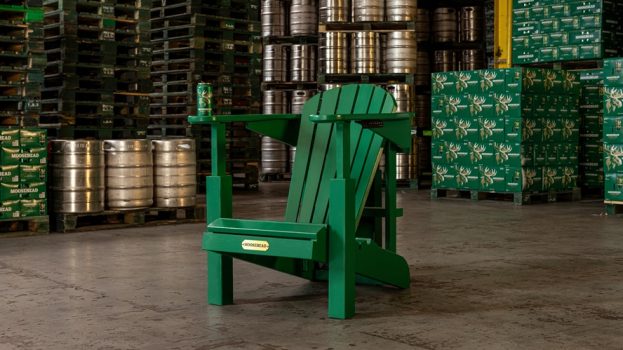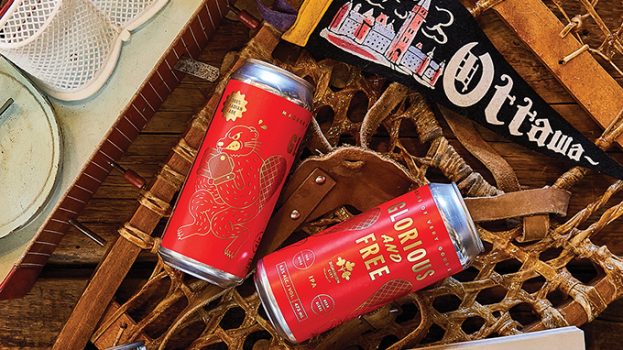This summer, brewing giants like Anheuser-Busch InBev and Molson Coors have been rallying to support the country’s beleaguered bar and restaurant industry, whose closures and limited operations also had major impacts on their own bottom lines. That followed efforts to keep people connected and create more socializing occasions during lockdown through things Zoom happy hours.
Now, Carlsberg Group is combining the two.
The company – which owns the Carlsberg, Kronenbourg and Somersby brands – is launching “Good To Be Back,” where participants are being given a chance to create customized, digital invites to friends, asking them to hangout at their favourite bar. To further incentive patrons, Carlsberg is treating each group to a free appetizer through a voucher added to a mobile wallet. The program has been rolled out in a staggered fashion across different markets, to adapt to the timing of staged reopenings in different markets.
The initiative, in-market until the end of September, was developed with Vibrant, an experiential agency with which Carlsberg’s marketing director Alistair Kidd had developed a relationship while holding a similar role for Diageo Canada.
According to Kidd, the on-premise side of Carlsberg’s business typically represents 15% of total sales across the country, though that figure has “changed drastically” since the pandemic began. But besides the hit to sales, closures and on-going concerns like limited capacities and general consumer reluctance to spend time in bars is having a continuing impact on what is also an important aspect of how customers interact with the brand.
“Good to Be Back” aims to reestablish that touchpoint with consumers, but doing the outreach through bars and restaurants was still important, Kidd says. This was not only to support valued partnered, but helped amplify the program, as they could reach out to their own social networks and amplify the message. The primary means of spreading awareness is digital and social, working with Vibrant to create content.
Kidd says “Good To Be Back” builds upon Carlsberg’s global image of making the world better by giving back. He says it’s important for global brands, especially, to find ways to act local in order to bring its positioning to life in a more relevant way. One example his cites is Somersby’s recent announcement that it is being brewed locally in Canada, which was reaffirmed through a farmers’ market it held in Toronto’s Liberty Village.
This “Good To Be Back” endeavour (Initiative Canada was also involved as their media planning and execution agency) is part of a bigger shift Carlsberg’s had to undertake for its summer planning thanks to the pandemic, which was also impacted by the cancellation of major outdoor music festivals like Boots & Hearts. It also typically builds brand awareness around food occasions, which was difficult to do and plan for amidst so many closures early on in the summer and uncertainty around when restaurants would reopen. In Western Canada, Kidd says, it also launched a Carlsberg “Snap Pack,” a sustainable packaging innovation for cans, which would’ve had a larger test run if COVID had not happened.
























